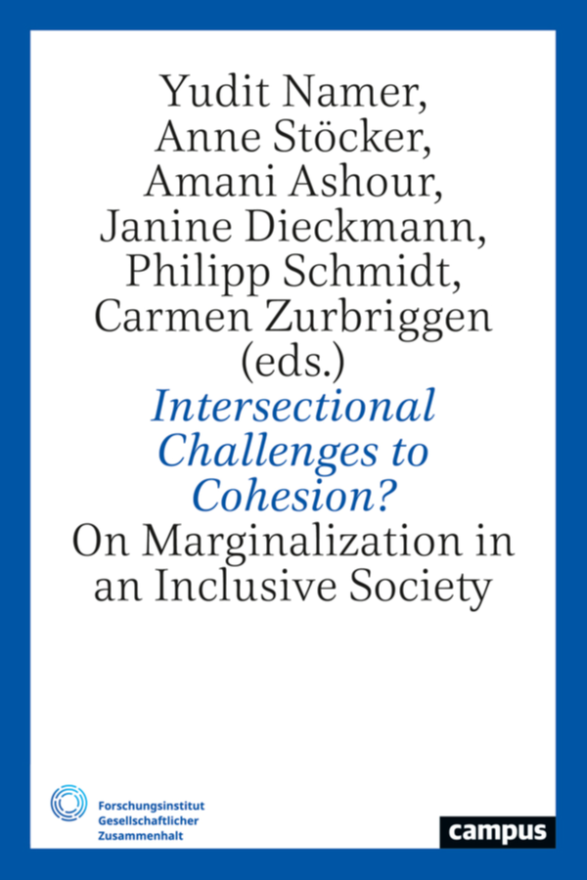Discrimination as a Threat to Social Cohesion: An Intersectional Analysis of Discrimination and its Impact on Social Cohesion
Abstract

This chapter quantitatively analyzes experiences of intersectional discrimination using data from the study “Discrimination Experienced?! Experiences of Discrimination in Saxony” and offers interpretations about how such experiences relate to social cohesion. Using selected everyday situations as examples, it compares the frequency of discrimination experiences based on different sociodemographic characteristics and examines how the frequency of certain experiences changes when different marginalization factors intersect. It also considers different behaviors affected persons adopt to avoid potential discrimination situations and asks how discrimination experiences based on multiple forms of marginalization affect social cohesion, which is conceptualized as a normative concept calling for equal participation of social actors. In conclusion, discrimination and strategies adopted to avoid discrimination limit social participation and thus pose a threat to social cohesion. The study is based on two population surveys, each with 2000 respondents in Saxony and in the rest of Germany, as well as on a non-representative survey with more than 1500 respondents.
Sources
Aalders, Sophia, Steffen Beigang, Miriam Zineb Meksem, Lara Kronenbitter und Janne Schleifer. 2024. Discrimination as a Threat to Social Cohesion: An Intersectional Analysis of Discrimination and its Impact on Social Cohesion. In: Intersectional Challenges to Cohesion? On Marginalization in an Inclusive Society, hg. von Yudit Namer, Anne Stöcker, Amani Ashour, Janine Dieckmann, Philipp Schmidt und Carmen Zurbriggen, 65–84. 1. Aufl. Gesellschaftlicher Zusammenhalt 7. Frankfurt: Campus, 19.06.2024. url: https://www.campus.de/buecher-campus-verlag/wissenschaft/soziologie/intersectional_challenges_to_cohesion-17944.html.
